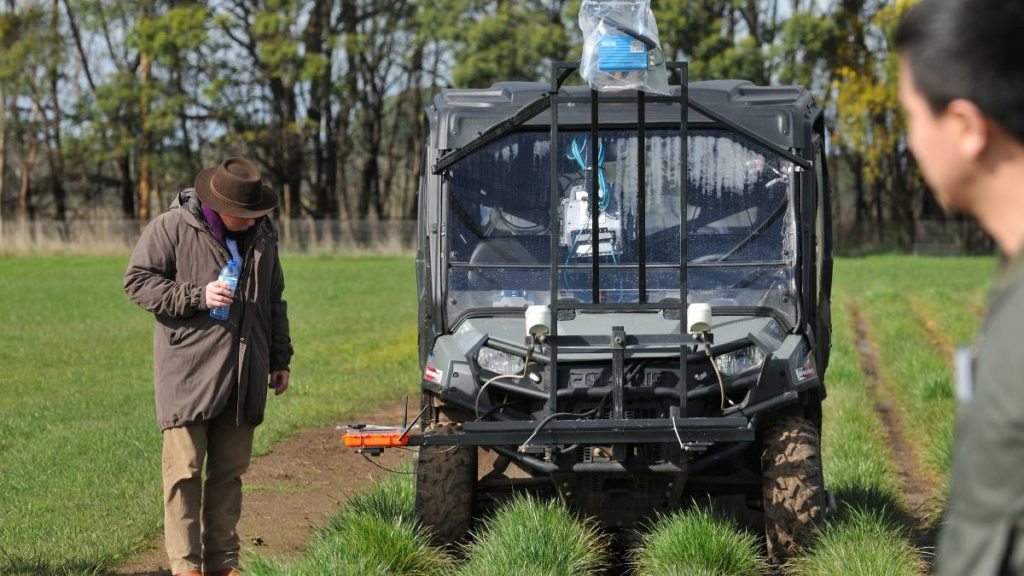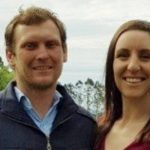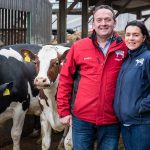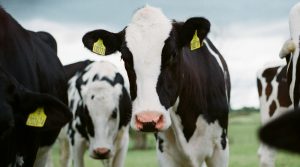
Its 270,000 individual plants are in rows spanning the equivalent landmass of eight AFL football fields, forming the world’s largest perennial ryegrass field trial.
These selectively bred plants (or cultivars) and the technology used to measure them are important components of DairyBio’s and DairyFeedbase projects, which are assisting dairy farmers to improve feedbase productivity and animal health.
The DairyFeedbase initiative launched in 2018 by Dairy Australia, Agriculture Victoria and the Gardiner Foundation has cultivar selection and pasture measurement as key components. Researchers are improving the quality of data and information within Dairy Australia’s Forage Value Index to improve farmer confidence in selecting the right cultivars for their system.
Keeping cows cool in Australia’s hot climate is another important mission of DairyFeedbase, providing new herd feeding strategies for hot weather and setting new targets for genetic selection to breed cows for Australian conditions.
With support from Dairy Australia, farmers are currently trialling automated pasture measurement tools including drones, that are expected to improve pasture allocation and productivity at a herd level.
Its research would revolutionise dairy feedbase management in Australia and had the potential to deliver returns to the industry of $100 million per year in 10 years.
– Kevin Argyle
Farmers can also expect new approaches to allocate feed at an individual cow level, to better supplement for peak lactation, identify and minimise early metabolic issues and improve health.
Dairy Australia director major innovations and DairyBio co-director Kevin Argyle said farmers were already changing what they grew through the availability of better pasture varieties and better information on the selection process.
“DairyFeedbase will share these insights and real-time information with farmers via user-friendly digital tools to help them improve their decision-making in the paddock,” he said.
Mr Argyle said its research would revolutionise dairy feedbase management in Australia and had the potential to deliver returns to the industry of $100 million per year in 10 years.
The program will enable some farms to achieve savings of up to $200 per hectare each year due to better pasture selection and utilisation, and $650 per cow each year due to improved animal performance, he said.
























